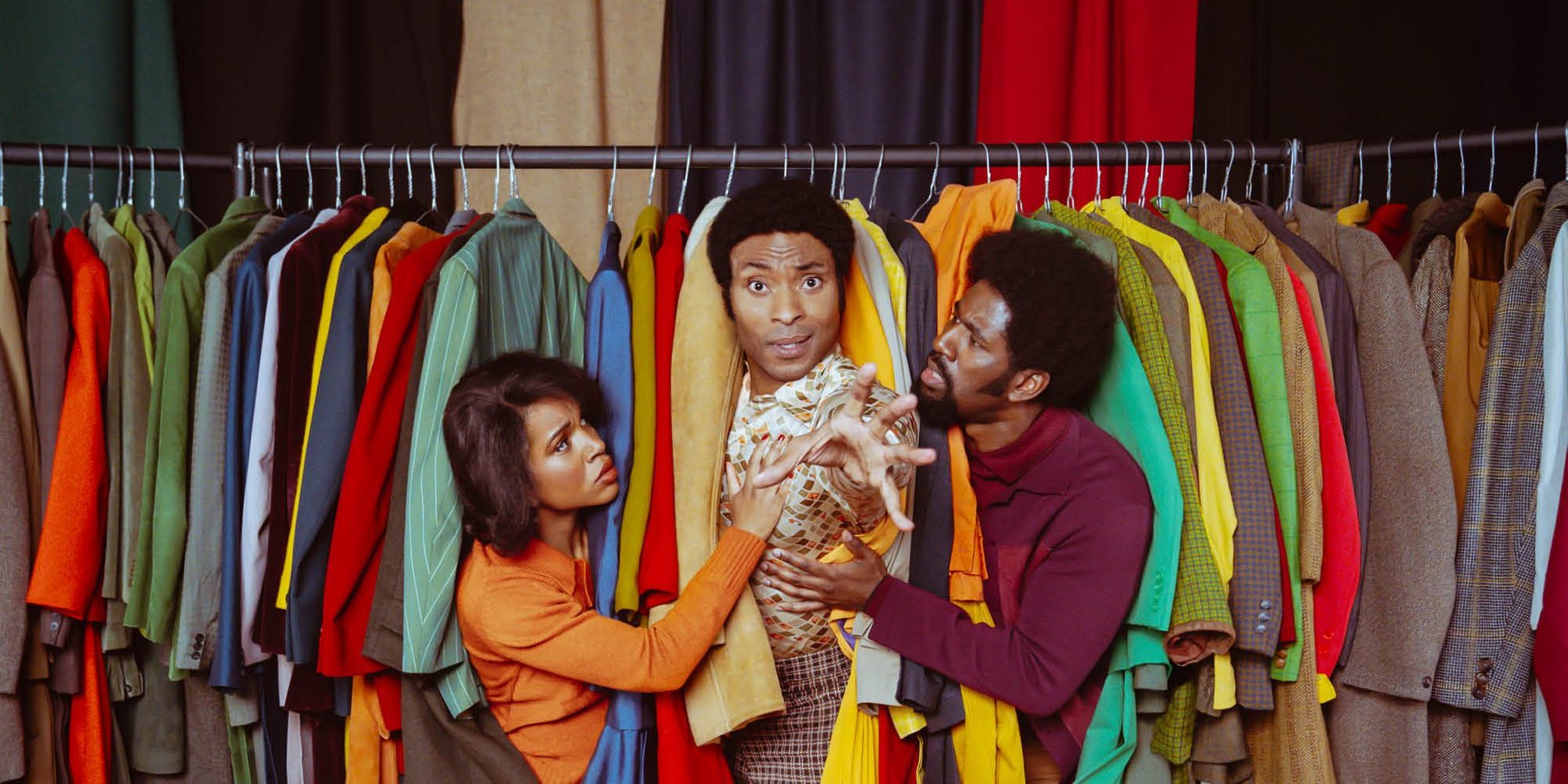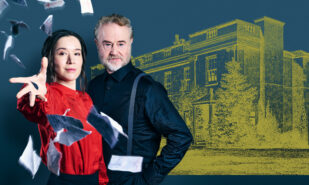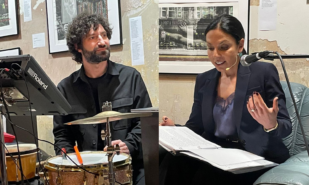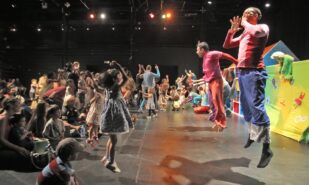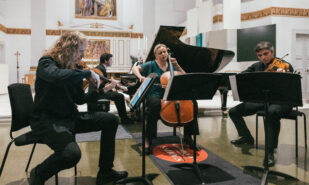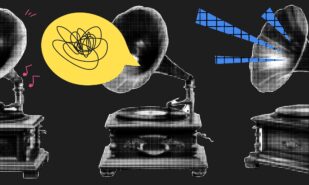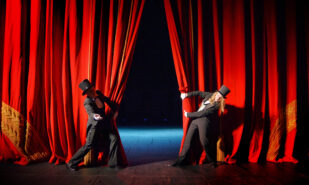It Will Hurt A Revival of an Old Play About Immigrants at the Lyttelton Theatre
The National Theatre has unearthed a play from the archives, written in 1978 by British playwright of Guyanese origin, Michael Abbensetts. Its premiere was a great success that same year, coinciding with the television series Empire Road, which was also popular and beloved by audiences.
In other words, Abbensetts was speaking to viewers about the fate of his immigrant characters at the height of his own success, and his voice resonated with theatregoers as much as, say, Freddie Mercury’s voice did in a stadium. But the Lyttelton Theatre wouldn’t be the Lyttelton if it focused solely on nostalgia and the warm glow of a retro story. Yes, there are plenty of charming details from the late ’70s—the clothes, the furniture, the dishware—all carefully and lovingly selected. And yet, the set doesn’t feel dusty or merely vintage. Instead of being a relic pulled from history, it feels as though we’ve been transported back forty years, rather than Walker’s shabby little tailor shop being plucked from the past (set design by Frankie Bradshaw). A rotating platform—more of a square than a circle—is crowded with towering racks of secondhand clothing. Beneath these layers of fabric, people live. And, to put it mildly, they don’t have it easy. But as the saying goes, immigration is no vacation, so that much is to be expected.
An immigrant from Guyana, working in his tiny tailor’s workshop, takes on a massive order—hemming countless pairs of trousers. The job must be completed in a single day, and if he manages, he’ll be handsomely paid. With that money, Walker dreams of opening his own shop on Carnaby Street. But will he make it in time?
This setup carries something of a fairy-tale quality—like Hans Christian Andersen’s story of the sister weaving shirts for her brothers who have been turned into swans. Will she endure the pain of stinging nettles and reach a happy ending? Here, however, the evil sorcerer is replaced by a grumpy, aging client—lonely and exhausted, but by no means a wicked enchanter.
Yes, fairy tales, when transferred to reality, look like this—relentless work, deep fatigue, and somewhere on the horizon, a golden dream. And just as one side of this story echoes classic folklore, the other side resembles a workplace drama.
It’s almost laughable to think about, but Alterations is, in essence, just that. The action unfolds in a tiny tailoring workshop—two sewing machines, a serger, and an ironing board. The workers share a remarkable quality: they are completely dedicated to their craft. They toil like beasts, unafraid of hard work, never whining about their aching hands. They constantly joke, never expect help from the powerful figures of the world, and—most importantly—each of them has a dream. This is most evident in the character of Walker (Arinzé Kene). He is the driving force of the story, its engine, its ideological leader. Let’s not forget, it’s 1978, the era of stadium rock, and more than anything, this group of tailors resembles a rock band.
When Walker dreams, the cramped set blossoms open like a flower—silently, seamlessly—flooding the stage with silver, almost moonlit light. But besides his dream and the telephone, which constantly rings with the voice of some charming woman to whom he croons sweet words, Walker unexpectedly has a daughter—and a wife.
Darlene (Cherrelle Skeete) was ready to open her own little restaurant back home but followed her husband across oceans to distant London in search of a better life. A loyal partner, she worked in a factory until she lost her job, and now she has come to ask—how much longer? But Walker keeps stringing her along with promises: Later, he says, later. Be patient. Just wait. The money will come, but not yet.
She beats against this closed door. They reminisce about how they met, and under the influence of nostalgia, Walker even puts his arm around her. But it seems their marriage is doomed. Without immigration, perhaps they might have endured…
The audience laughs constantly—and rightly so. The humor is universal, and this text, though adapted for modern times by Trish Cooke, remains timeless. Their jokes arise from sheer exhaustion, from an effort to keep from crying, or to prevent an overheated conversation from exploding into a full-blown scandal.
This is a true ensemble piece. There is no single star meant to outshine or outplay the others. Alterations is like volleyball without a net—not about the score, but about the joy of keeping the ball in the air.
Darlene is vivid, lively, and utterly real—it’s easy to see why every man in the play is drawn to her. Horace (Karl Collins), a striking figure and a natural flirt, could easily come across as a shallow womanizer, but his unexpected shyness and desperate bravado give him depth.
Young Courtney, the eager errand boy (Raphel Famotibe), might be the most skilled worker among them all. He endures everything from his older colleagues, just for a chance to make it, to succeed, to grab hold of luck.
Buster (Gershwyn Eustache Jnr), the moral compass of the story, Walker’s friend and confidant, is honest and deeply in love. Throughout the play, he trembles with anticipation, and by the end, he finally receives the news—his wife has just given birth to a son.
Paired with Walker is Mr. Nat—unexpectedly, these two vastly different men are eerily similar in spirit, philosophy, and overall vibe. One has already achieved his dream, while the other is still chasing it. And Mr. Nat roots for Walker as if he were cheering for his younger self, twenty years ago.
Under Lynette Linton’s intelligent and precise direction, this story expands far beyond its immediate narrative—it becomes a broader reflection on immigration and loss. No wonder Walker is accompanied by several figures—ghosts, or perhaps spirits. A couple dressed in antique clothing—his ancestors, perhaps—raising gloved hands in encouragement, their hats of an ancient style, their movements slow, almost out of time. And then, suddenly, a young man in a black hoodie, sneakers, and a backpack appears—a different generation, the present one. Walker does not see them, but they see him. They see him and are glad. They see him and support him. They see him and are grateful.
And then there are the enormous checkered bags, so familiar to people from post-Soviet countries, evoking memories of the long-forgotten word “chelnok”—not a part of a weaving loom, but a person darting between countries, buying goods for resale. These bags didn’t exist in London in 1978; they appeared about five years later, not as symbols of trade, but of migration.
This play is, among other things, about how crucial it is to work, to dream—but also to be prepared for pain, for longing, for exhaustion. The price is high. Are you ready to pay it? Then go ahead.
It will hurt.

